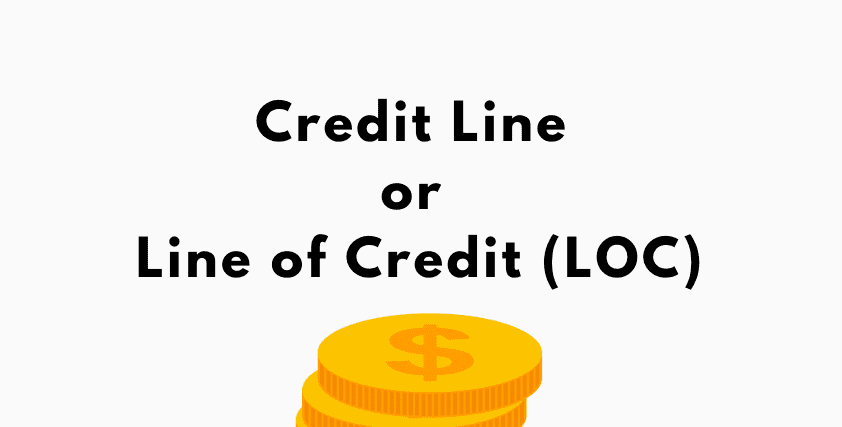A credit line, sometimes known as a “line of credit” (LOC), is a sort of standing loan that allows individuals, corporations, or other organizations to borrow money up to a pre-set limit when they need it, repay it, and continue borrowing without having to qualify for a new loan.
A credit line is an arrangement in which a bank or vendor extends a specified amount of unsecured credit to a specific borrower for a specified time period. Credit lines are great to have for any business. With a credit line, you can borrow as much, or as little, as you want, as long as it falls within the limit previously agreed upon by you and the lender.
The better credit scores your company has, the higher the credit line your company will be eligible for. Since you can just draw out money whenever your business needs it, the fear and possibility of overborrowing are virtually eliminated. It is a loan you can access at any time and take out exactly how much you want or need.
Advantages of Credit Lines
A. Borrowing Flexibility:
With a line of credit, borrowers have the freedom to withdraw funds as much or as little as needed, up to the predetermined credit limit. Example: A small business can use a credit line to cover short-term cash flow gaps or fund unexpected expenses.
B. Elimination of Overborrowing Concerns:
Unlike traditional loans where borrowers receive a lump sum, a credit line allows borrowers to access funds on an as-needed basis, preventing the possibility of borrowing more than required. Example: An individual who holds a credit line can use it to pay for home renovations, accessing funds as different stages of the project require payment.
C. Improved Cash Flow Management:
By having access to a line of credit, individuals and businesses can better manage their cash flow, ensuring they have sufficient funds to cover expenses during lean periods. Example: A retail business can use a credit line to purchase inventory during a slow season, ensuring product availability without straining their finances.
Determining Credit Line Eligibility
A. Credit Score Importance:
The creditworthiness of a borrower, reflected in their credit score, plays a crucial role in determining the credit line they are eligible for. Example: A company with a higher credit score is more likely to secure a larger credit line than a business with a lower credit score.
B. Relationship with Lender:
Building a strong relationship with a lender can increase the likelihood of securing a higher credit line, as trust and reliability are essential factors. Example: A long-standing customer with a bank who has a history of timely repayment and responsible credit usage may receive preferential treatment when applying for a credit line.
Effective Utilization of a Credit Line
A. Responsible Borrowing:
It is crucial to borrow within one’s means and use the credit line for legitimate business or personal expenses, ensuring timely repayment. Example: A responsible borrower will use their credit line to fund business expansion, invest in new equipment, or cover essential personal expenses during emergencies.
B. Regular Monitoring:
Consistently reviewing a line of credit usage and repayment schedules helps borrowers stay on top of their financial obligations and make informed borrowing decisions. Example: A borrower who frequently monitors their credit line will be aware of their outstanding balance, interest rates, and payment due dates, avoiding potential penalties.
Conclusion:
A credit line serves as a flexible and accessible financial tool, enabling individuals and businesses to borrow a defined amount of funds as needed, repay them, and continue borrowing without going through the loan application process repeatedly. By understanding the advantages and eligibility factors associated with credit lines, borrowers can effectively utilize this resource to manage cash flow, finance ventures, and meet financial goals.



